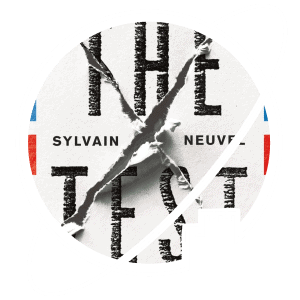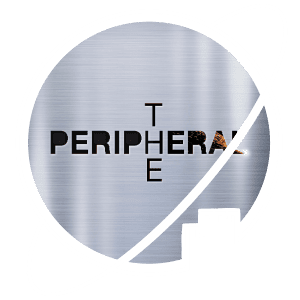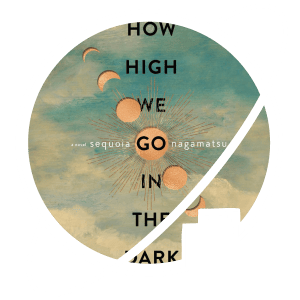- Book written by Ted Chiang
- Published 7 May 2019
- Short story collection
A merchant in ancient Baghdad discovers a time portal which allows him to revisit his past mistakes. A former zookeeper takes a job raising digital lifeforms. A new technology enables people to communicate with alternate versions of themselves, and to see how their life would have turned out if they had made different choices. The nine short stories in this collection focus on some of life’s biggest questions: questions about free will, the nature of consciousness and humanity’s place in the universe.


Exhalation is a collection of novellas and short stories. I’m rating and reviewing the book as whole, but I’ll include a couple of lines on the separate stories below.
Exhalation is one of these books I’ve been vaguely aware of for years, but I didn’t get round to for a long time for no other reason than that there was always something else just above it on the list. It’s a real pity, because Exhalation is an amazing collection of short stories with not a single miss in it.
Chiang writes very traditional science fiction in the sense that all of his stories are based on an idea. Whether the idea is a scientific discovery, a technology or magic, Chiang then explores the impact of that idea on society. That doesn’t mean his characters are poorly written, but the stories are not designed around the characters like most fiction is.
Most of the stories in Exhalation focus on pretty heavy topics such as fate, free will or the literal meaning of life. Chiang manages to elegantly weave these questions into everyday narratives that keep the big topics relatable. I think it is a sign of his mastery that Chiang is able to write so thought-provokingly without ever needing to change much about our society to make it work.
Both bite-size and literary, the stories in Exhalation have been showered with awards and nominations, and I think they deserve it. Below, I’ve included a separate rating for each of the stories in the collection.
—-
The Merchant and the Alchemist’s Gate: 5/5. Hugo- and Nebula Award winning novelette (apparently, a ‘novellette’ is a thing). Amazing 1001-nights inspired fantasy story on fatalism, time travel and the nature of loss.
Exhalation: 3.5/5. Hugo Award winning short story on entropy and the ultimate finality of life in the universe. very fatalist, strangely soothing.
What’s Expected of Us: 4/5. Cute bite-size short story on the nature of free will.
The Lifecycle of Software Objects: 5/5. Hugo- and Locus Award winning novella on the nature of our relationship with AI. The interesting twist is that the AI is not indistinguishable from humans, but rather very clearly just a little below that threshold. That makes the questions on AI rights and the place AI takes in the main characters’ lives feel more real somehow.
Dacey’s Patent Automatic Nanny: 3.5/5. Novelette on a steampunk nanny-robot that reminded me a lot of the type of technology described in The Difference Engine.
The Truth of Fact, the Truth of Feeling: 4/5. A short story on the benefits and dangers of recording memories. A very similar idea to the (earlier) Black Mirror episode S1E3 “The Entire History of You”, though somewhat less dramatic in presentation. It is interspersed with a story on the impact of writing brought to Nigeria by European missionaries.
The Great Silence: 3/5. A short story intended to be part of an art installation – still works in the book, but I would rank it last (which is no shame in this list).
Omphalos: 4.5/5. Fascinating, Locus Award-winning story based on the premise that the world was indeed created by a god in the (relatively) recent past, and it is possible to find scientific evidence of that creation. It explores the idea of meaning in a world where a god might exist, but you might not be sure he is watching.
Anxiety is the Dizziness of Freedom: 5/5. I’m not sure on the name of this novella, but don’t let that put you off. It explores the idea of free will and choices if the existence of parallel universes is confirmed and you can have a peek in them every now and them. It reminded me of The Peripheral (the novel) at times.

I finally got round to reading this collection, which has been sitting patiently on my shelf since I bought it in October. I generally enjoyed it: the stories were interesting and definitely thought-provoking in the best sense. I especially enjoyed the story ‘Exhalation’, which offers a strange but unique meditation on the scientific concept of entropy.
Many of the stories in the collection offer a Black Mirror-like view on the impact that new technologies could have on the human experience, although I do have to add that Chiang’s stories are far less dark than those of Black Mirror. Whether that is a good or a bad thing you will have to decide for yourself. Personally, I especially appreciated how well Chiang was able to translate the impact of these technologies to the lived experiences of his characters. He adds many nuanced but realistic details about the unexpected ways in which people’s daily life could be affected.
As is usually the case with short story collections, not every story worked equally well for me. But on the whole I think it is a very strong book with a number of truly interesting takes on some of the mysteries of our existence.








